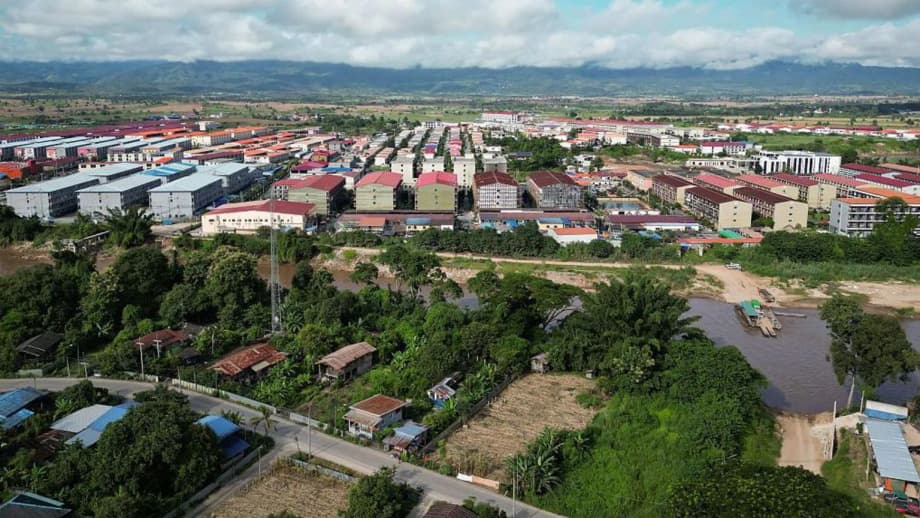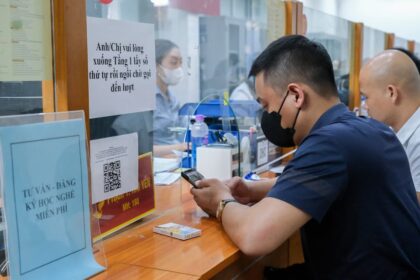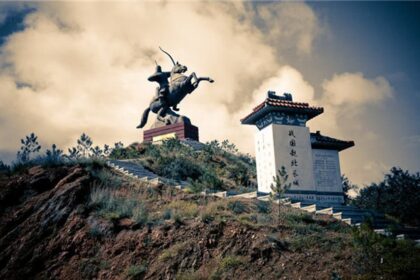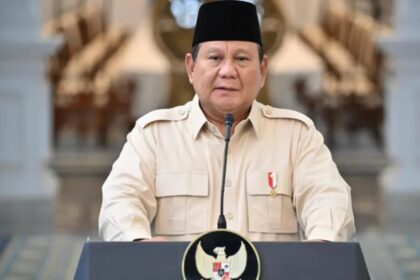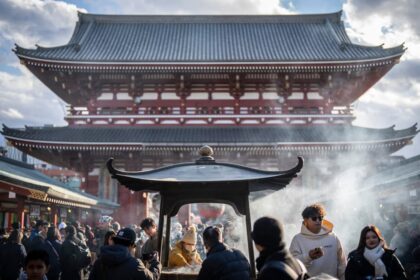A border raid that tests power and credibility
Myanmar’s military says it has seized KK Park, a sprawling criminal complex on the edge of Myawaddy near the Thai town of Mae Sot, after a rapid operation that it frames as both a law enforcement action and a strategic gain in the country’s brutal civil war. Officials said troops cleared and occupied around 200 buildings, detained more than 2,000 people including staff and security guards, and seized 30 terminals connecting to Starlink, the satellite internet network that has become the industry standard for scam operators along the frontier. The move comes as the army tries to reassert control over the main trade corridor with Thailand and to prepare for an election planned for December that opposition groups reject as illegitimate.
- A border raid that tests power and credibility
- What is KK Park and how it grew so fast
- How the raid unfolded according to the military
- Is KK Park really shut or only partly taken
- China’s pressure and a widening crackdown
- Starlink and the digital backbone of the scam industry
- Inside the scams and who gets targeted
- War, territory and the calculus around Myawaddy
- What to watch next
- The Bottom Line
KK Park has for years been synonymous with online fraud, money laundering, and human trafficking. Thousands of workers, many recruited with offers of high pay for technology or customer service jobs, were then coerced into running elaborate online schemes that siphoned billions of dollars from victims around the world. Witness accounts describe a closed compound with dormitories and offices, rigid work quotas, and violent punishments for those who refused or failed to meet targets. The complex sits within a cluster of dozens of similar sites strung along the Moei River between Myanmar and Thailand, an illicit economy that links local armed groups with transnational crime syndicates.
The military, long accused of tolerating and profiting from such operations through allied militias, now says it is taking them apart. Its push follows sustained pressure from China, which has pressed both Myanmar and Thailand to disrupt scam hubs that target Chinese citizens, and from Thailand, which has restricted electricity and fuel to parts of the border zone. Thousands of workers have been extracted from compounds in recent months, yet the criminal business model has adapted and persisted across the frontier.
What is KK Park and how it grew so fast
KK Park began with a lease agreement in early 2020 to build an industrial zone under the authority of the Karen National Union, an ethnic armed group that controls territory around Myawaddy, and a Hong Kong listed company called Huanya International. Researchers have traced ties between figures involved with the project and Wan Kuok Koi, the Macao gangster known as Broken Tooth, who invested in several border ventures. What was presented as a trade park evolved into a highly fortified city for illicit online activity. It became visible from the Thai side as new office blocks, dormitories, shops, hotels and even a clinic rose behind checkpoints and walls.
Those who escaped describe an abusive system. Phones and passports are taken away on arrival. Workdays can stretch to 17 hours. Failure to hit revenue goals can bring beatings, torture or confinement. People from across Southeast Asia, South Asia and Africa have been trapped inside, often after paying recruiters for what they believed were legitimate jobs. Many are told they must pay a large fee to terminate their contract, locking them in debt and fear. The scams include romance and friendship grooming known as pig butchering, cryptocurrency investment fraud, and fake trading platforms designed to drain victims’ savings.
How the raid unfolded according to the military
Myanmar’s information ministry reported that troops entered the compound, secured a large section of the site, and found nearly 2,200 workers. Officials said the operation uncovered widespread use of Starlink terminals to keep the scam centers online in spite of disruptions to grid power and mobile networks. The army also highlighted a broader campaign around Myawaddy, saying it has retaken key positions and resecured most of the highway that links the border gateway to central Myanmar, a priority before the planned December vote.
In a statement summarizing the operation, the information ministry said it was acting against armed groups and volunteers aligned with the resistance that had occupied the area after the 2021 coup. Officials framed the sweep as a rescue for trafficked workers and a crackdown on an illegal enterprise tied to insurgent funding.
The ministry said: “Our forces cleared KK Park, releasing more than 2,000 workers and confiscating 30 Starlink satellite terminals.”
Local reports say the army coordinated with Karen militias that are allied with the military before moving on KK Park. The army also claims to have captured Lay Kay Kaw, a model town built with Japanese support in 2015, a loss that hurts the Karen National Union more directly than the seizure of KK Park. Control of Lay Kay Kaw and the road to Myawaddy improves the army’s access to border trade, which is critical to revenue and logistics.
Is KK Park really shut or only partly taken
People familiar with the compound say scam work has continued in parts of KK Park even after the army’s incursion, raising the likelihood that the military secured only a section of the site and allowed activity to carry on elsewhere inside the complex. The border belt around Myawaddy still holds many criminal hubs. Regional authorities and analysts count at least two dozen large compounds on or near the river, and Thai police estimate that tens of thousands of workers remain trapped or engaged in scams along this frontier, perhaps as many as 50,000 to 100,000 across the network.
A partial victory or a publicity move
The operation serves several aims at once. It shows a degree of progress to Beijing, which has demanded action against syndicates targeting Chinese citizens. It strengthens the army’s position on a trade route that it views as strategically important. It also provides a visible success ahead of the planned election. The decisive test is whether it leads to lasting closures and prosecutions, or whether activity shifts into adjacent compounds under the protection of militias allied with the army and local officials.
Rangsiman Rome, the chair of the Thai House Committee on National Security, has warned that without deeper reforms the current push will not stop the business model that sustains these sites.
Rome said: “Without deeper reforms, intelligence sharing, and global cooperation, these syndicates will continue adapting and operating in different locations.”
The humanitarian picture on the ground underscores the scale of the challenge. Thousands of people remain stranded in and around Myawaddy, waiting for repatriation or screening to determine whether they are victims or perpetrators. Thai officials say careful investigations are needed because some workers entered the area willingly for high pay, while many others were deceived and trafficked.
China’s pressure and a widening crackdown
China’s government has pressed Myanmar’s military and Thailand to dismantle criminal centers that target Chinese citizens across Myanmar’s borderlands. Flights carrying Chinese nationals out of the border compounds have departed in waves this year, as Thai and Chinese officials tightened controls on electricity, fuel and movement near Myawaddy. In northern Myanmar, Chinese authorities supported a large crackdown on powerful crime families in Kokang. Courts in China sentenced senior members of the Ming clan and associates, including death sentences for several, over their role in vast online fraud, gambling and trafficking operations that flourished during years of lawlessness.
That pressure is shaping events further south around the Thai Myanmar crossing. Chinese officials have been coordinating with Thai police to transfer suspects and victims out of scam hubs. People with knowledge of the sweeps say Chinese authorities have provided names of wanted citizens to Myanmar’s military, seeking arrests and transfers to face trial in China. The political cost of inaction for the army’s leaders has risen as public anger in China, fueled by high profile kidnapping cases, pushed Beijing to demand results.
Starlink and the digital backbone of the scam industry
Satellite internet has become the lifeline of the fraud factories along the frontier. Starlink is not licensed in Myanmar, yet network measurements show it surged to the top of internet provider rankings in the country from July to October this year. Investigators have identified dozens of satellite dishes on rooftops at several compounds, and one building near Myawaddy appeared to carry nearly 80 dishes. The pull of satellite connectivity is simple. It works when power is cut, when mobile towers are down, and when authorities try to throttle traffic. That resilience lets scam networks keep calling, texting and chatting with targets around the world.
Myanmar’s military says it seized 30 Starlink terminals at KK Park, a fraction of what appears to be in circulation across the region. Devices are obtained on gray markets and then moved into compounds by smugglers. Thai, Chinese and Myanmar officials have begun seizing equipment when they find it. Lawmakers in Washington have opened an inquiry into how the network is being used by organized crime, and how control gaps in sales and activation are being exploited.
Inside the scams and who gets targeted
The fraud ecosystem along the border has matured into a ruthless assembly line. Pig butchering scams start with a friendly message or dating app encounter. Operators build trust over weeks, sometimes months, then persuade the target to move funds into a fake trading platform. The interface looks real. Charts move, balances rise, customer service responds. The moment the victim tries to withdraw money, the funds vanish behind layers of crypto transfers and shell accounts. Other teams run romance scams, business email compromise schemes, or cryptocurrency mining offers that never existed. Artificial intelligence tools now help tailor scripts, images and voices to make the con more convincing.
The profits are immense. The United Nations Office on Drugs and Crime estimates that people in Southeast Asia lost about 37 billion dollars to regional scam operations in 2023. Money from these schemes feeds a parallel economy that also includes illegal mining and narcotics, and it bankrolls armed groups and local power brokers. The scamming centers have spread across Myanmar’s borderlands and into neighboring countries, with criminal nodes in Cambodia and Laos serving comparable functions. Authorities say networks recruit across continents, pulling hopeful workers from South Asia and Africa into a trap that can be hard to escape.
War, territory and the calculus around Myawaddy
For Myanmar’s military, controlling Myawaddy is about more than curbing crime. The crossing is the country’s busiest land trade artery, a source of customs revenue and a vital link to consumer goods. Since the 2021 coup, resistance groups led by the Karen National Union and allied forces have taken stretches of territory along this corridor. The army’s push to retake Lay Kay Kaw and most of the highway to the border marks a shift in the balance of power, even as large areas of the country remain outside its grasp. Retaking parts of KK Park hurts the Karen National Union’s influence in the area, yet most of the money from the complex flowed to militias that were allied with the army, underscoring the murky ties between state forces and organized crime that grew during years of conflict.
The planned election adds another layer. The army wants to hold voting in as many areas as it can control, and a visible security presence around Myawaddy helps create that impression. Resistance groups say the vote lacks legitimacy and vow to block it in areas they hold. For residents of the borderlands, the question is whether raids translate into sustained law enforcement and safer communities, or whether the underlying profit drivers keep the criminal economy alive under new management.
What to watch next
Several signposts will show whether the KK Park raid is a turning point or a tactical pause. If more compounds along the river go quiet, if equipment seizures accelerate, and if financiers and managers face prosecution, that would mark real change. Screening and repatriation must move faster and more consistently for the thousands still stuck around Myawaddy. Thai police have called for a permanent coordination center with regional partners to sort victims from suspects and to move cases through legal channels. Asset tracing and anti money laundering work will be critical, because the scam economy follows the money. The use of satellite internet at scale will remain a test for technology firms and regulators, who will be asked to close loopholes without blocking legitimate users in places where connectivity is already fragile.
The Bottom Line
- Myanmar’s army says it seized KK Park near Myawaddy, detained about 2,200 people and took 30 Starlink terminals.
- KK Park is part of a network of scam hubs along the Thai Myanmar frontier that has trafficked thousands and stolen billions from victims worldwide.
- People with knowledge of the site say parts of KK Park still appear active, and many other compounds continue to run across the border zone.
- China is pressing for action and has repatriated thousands of its citizens, while Thai police estimate tens of thousands remain in fraud factories.
- Satellite internet has become the backbone for these centers, with Starlink use rising despite a lack of licensing in Myanmar.
- UNODC estimates losses of about 37 billion dollars to Southeast Asian scam operations in 2023.
- The army’s advance also serves battlefield goals around Myawaddy ahead of a planned December election that opposition groups reject.
- Durable progress depends on sustained raids, prosecutions, equipment seizures, asset tracking, and faster repatriation for stranded workers.


